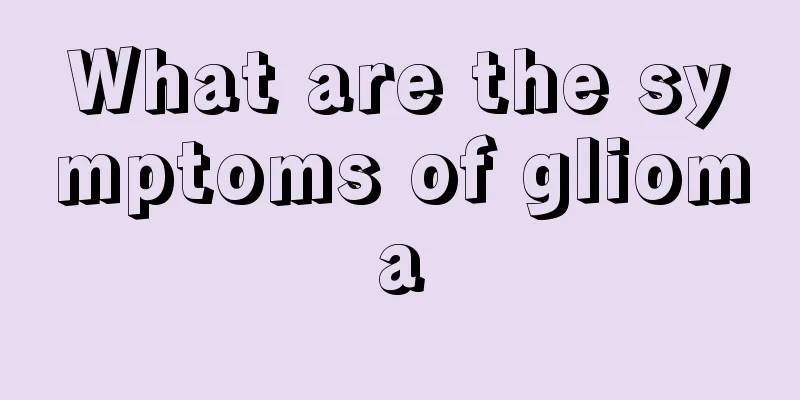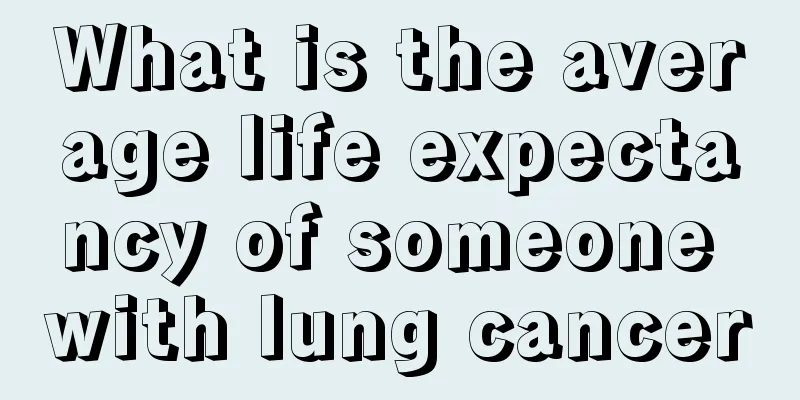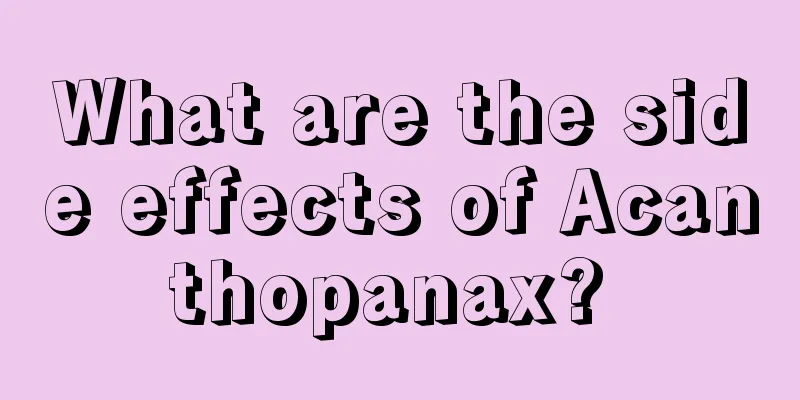What are the symptoms of glioma

|
Every disease causes harm to the human body. The appearance of glioma is an irresistible and serious disease caused to the body. It often occurs in the neuroectoderm. Some tumor patients have epilepsy symptoms. Let's learn about the symptoms of glioma. Symptoms mainly manifest in two aspects. One is increased intracranial pressure and other general symptoms, such as headache, vomiting, vision loss, diplopia, epileptic seizures and mental symptoms. The other is local symptoms caused by the compression, infiltration and destruction of brain tissue by the tumor, resulting in neurological dysfunction. Headaches are mostly caused by increased intracranial pressure. As the tumor grows, the intracranial pressure gradually increases, compressing and pulling on pain-sensitive structures in the brain, such as blood vessels, dura mater, and certain cranial nerves, causing headaches. Most of the headaches are throbbing and distending pains, mostly in the frontal, temporal, or occipital regions. For superficial tumors in one cerebral hemisphere, the headaches may mainly occur on the affected side. The headaches are intermittent at first, mostly occurring in the early morning. As the tumor develops, the headaches gradually worsen and last longer. Vomiting is caused by stimulation of the medullary vomiting center or the vagus nerve, and may be projectile without nausea. In children, the headache may not be obvious due to cranial suture separation, and because posterior cranial fossa tumors are common, vomiting is more prominent. Increased intracranial pressure can cause papilledema, which in turn can lead to secondary atrophy of the optic nerve and decreased vision. Tumors compressing the optic nerve can cause primary optic atrophy, which can also lead to decreased vision. The abducens nerve is easily compressed and pulled, often causing paralysis and double vision. Some tumor patients have epilepsy symptoms, which may be early symptoms. Epilepsy that begins in adulthood is generally symptomatic and is mostly caused by brain tumors. Those who are difficult to control with drugs or whose seizures change in nature should be considered to have brain tumors. Those with tumors adjacent to the cortex are more likely to develop epilepsy, while those with tumors deep inside are less likely to develop epilepsy. Localized epilepsy has localization significance. Some tumors, especially those located in the frontal lobe, may gradually cause psychiatric symptoms such as personality changes, indifference, decreased speech and activity, inattention, memory loss, lack of concern for things, and lack of cleanliness. |
<<: Will tongue cancer kill you if it gets serious?
>>: What are the causes of glioma
Recommend
What is the reason why hamartoma is difficult to cure
After suffering from hamartoma, Western medicine ...
Swollen face after allergy
When facial allergies cause swelling, it is neces...
Arsenic poisoning symptoms
Arsenic is one of the oldest poisons used since a...
The impact and treatment of excessive sweating in summer on health
Sweating is a common thing in summer, but excessi...
How to distinguish good and bad pistachios
As we know, pistachios have a very long history, ...
How to take off the colored contact lenses correctly
In fact, colored contact lenses are also a tool f...
What to do if hemorrhoids are itchy and uncomfortable
Because hemorrhoids occur in a special area, many...
What dangers do the protruding veins on the body mean?
The "blue veins" that we often talk abo...
What does hepatitis B surface antigen negative mean?
Hepatitis B surface antigen is one of the five te...
What causes high blood pressure? You need to know these reasons
Hypertension is a common cardiovascular disease i...
Introduction to two main diagnostic methods for gastric cancer
After the symptoms of suspected gastric cancer ap...
What are the symptoms of heart failure
We all know that heart failure is a very serious ...
How to restore bulging eyes due to myopia
Whether for teenagers who are in the learning sta...
Lumbar spine exercises
Office workers and students must be wary of lumba...
What is spinal anesthesia nerve damage
Deep nerve injury caused by intrathecal anesthesi...









